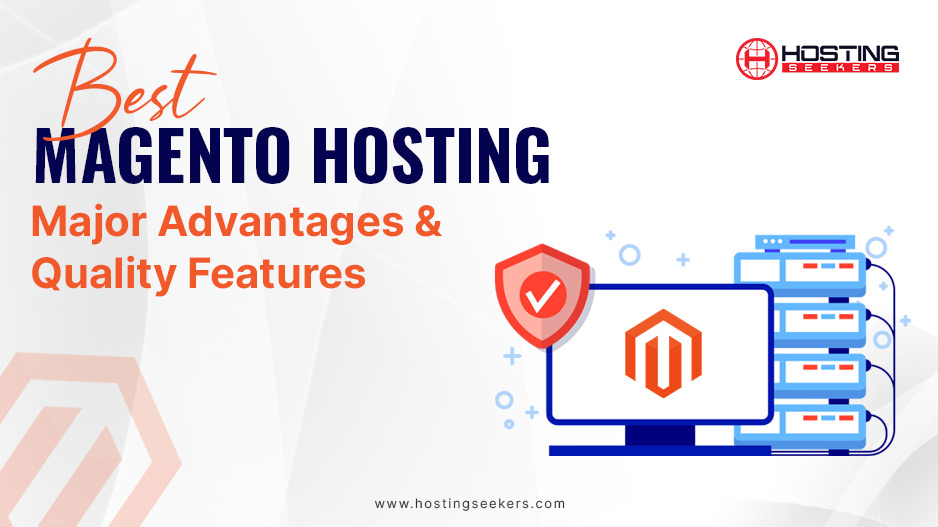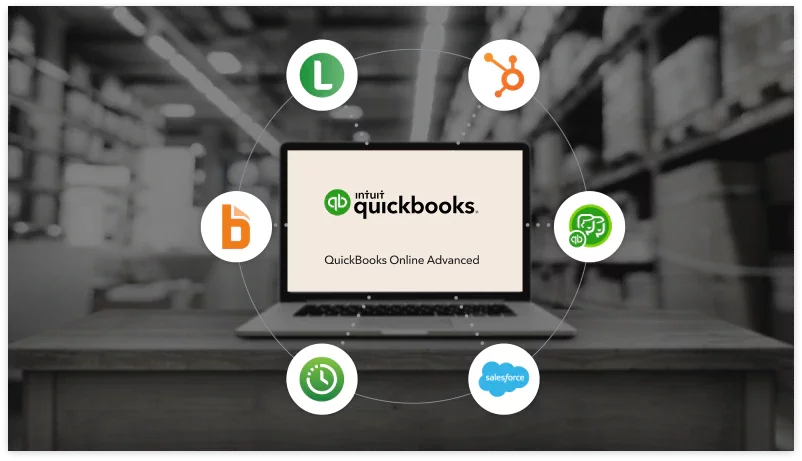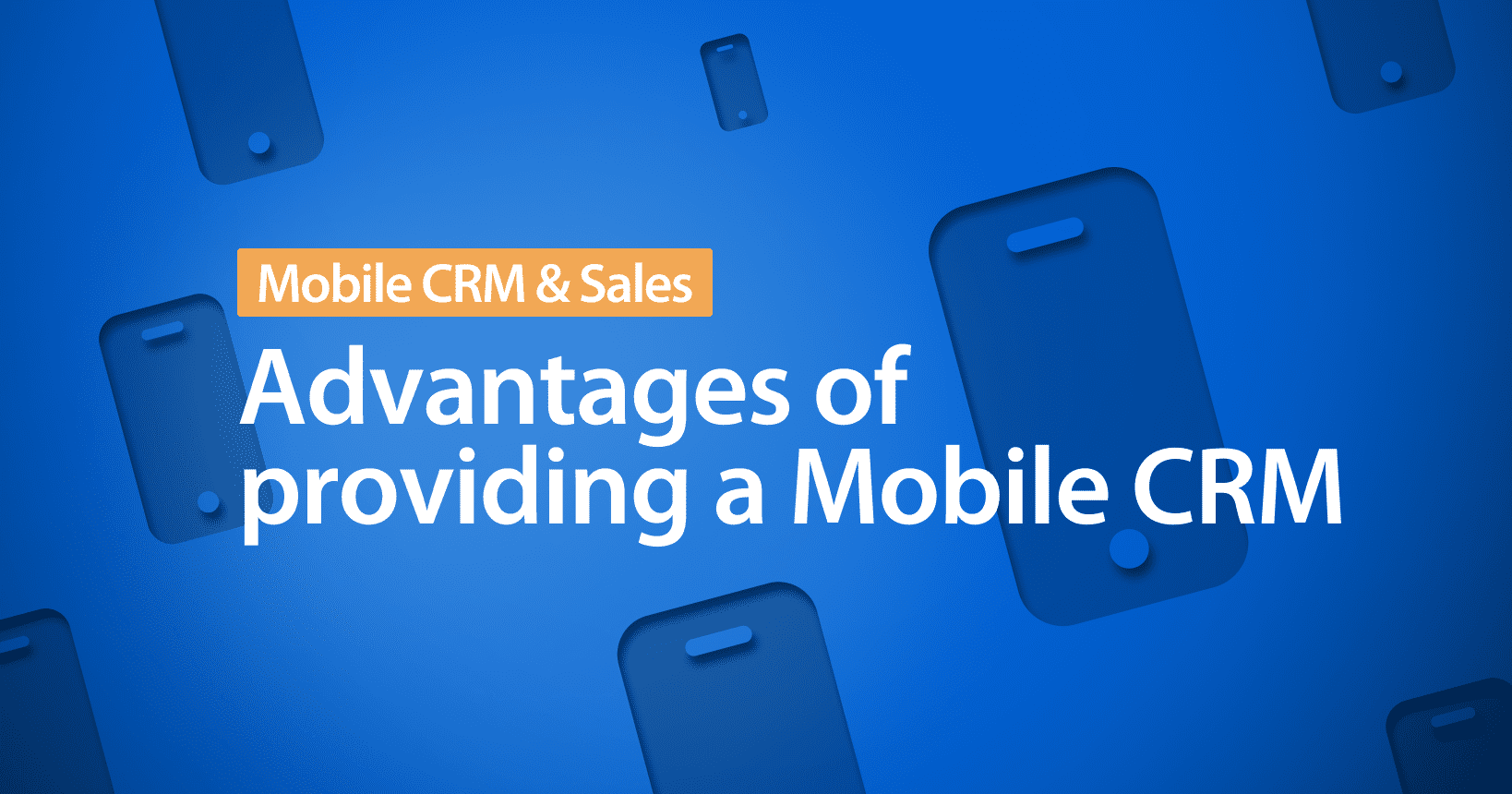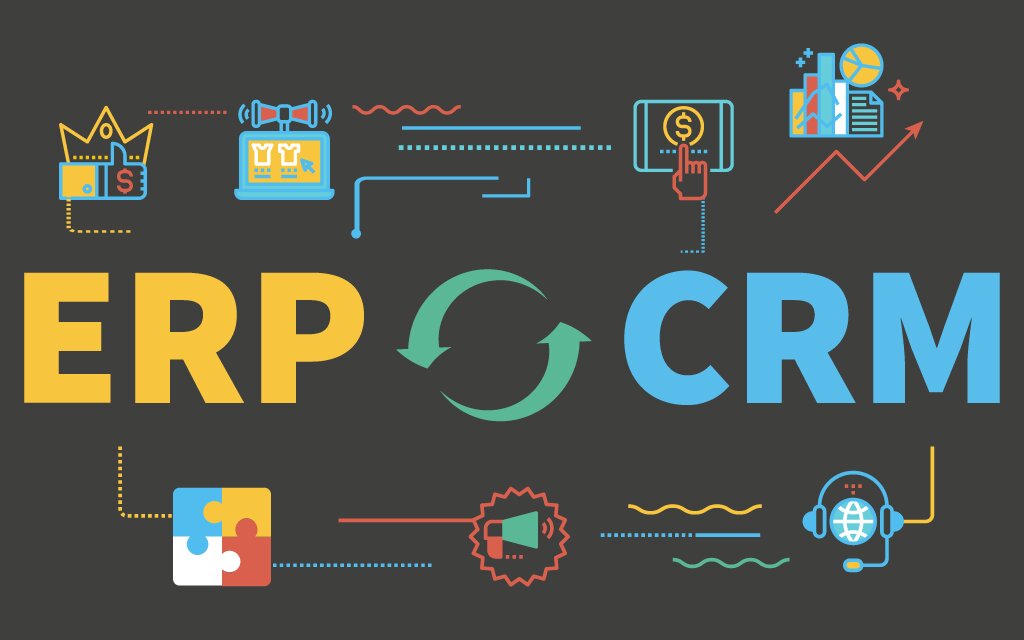In the rapidly evolving world of technology, businesses are continually seeking ways to optimize operations, reduce costs, and drive innovation. Enterprise Resource Planning (ERP) systems have long stood at the forefront of this quest, offering organizations a comprehensive solution to manage their operations. However, the shift from traditional on-premise ERP systems to cloud-based ERP is transforming the enterprise solutions landscape, offering unprecedented scalability, flexibility, and cost efficiency.
Understanding ERP Cloud Computing
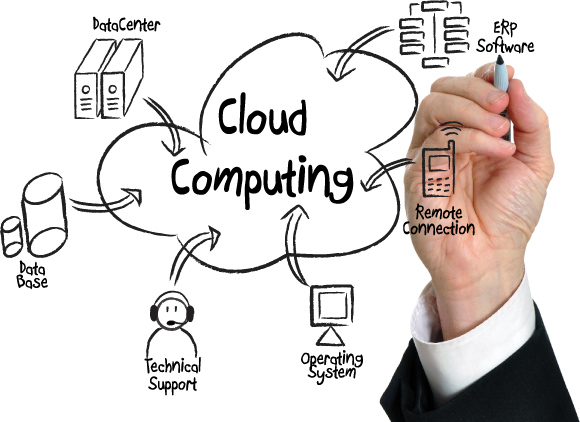
ERP cloud computing is a service that delivers ERP capabilities over the internet, allowing businesses to access their ERP software through a web browser without the need for internal hardware or IT staff to manage the system. This model not only reduces the upfront investment required for traditional ERP systems but also provides businesses with the agility to adapt to market changes and scale their operations as needed. Additionally, cloud-based ERP systems offer enhanced security and data protection measures, ensuring the safety of sensitive business information.
How ERP cloud computing works
ERP cloud computing operates on a subscription-based model, where businesses pay for the software and services they use on a monthly or annual basis. The service provider hosts the ERP software and associated data on their servers, which can be accessed by users through an internet connection. This eliminates the need for businesses to maintain their own hardware infrastructure and reduces the burden of maintaining and updating ERP systems.
The Benefits of ERP Cloud Computing for Enterprise Solutions
Cloud-based ERP systems offer numerous advantages over their traditional on-premise counterparts. These benefits include:
- Reduced Costs: With cloud ERP, businesses can significantly lower their IT expenditures, eliminating the costs associated with purchasing hardware, maintaining servers, and managing an IT department to run and update the ERP system.
- Increased Flexibility and Scalability: Cloud ERP solutions allow enterprises to easily scale their operations up or down as their business needs change, without having to invest in additional hardware or software.
- Anywhere, Anytime Access: Being hosted online, cloud ERP systems offer the flexibility for employees to access the system from anywhere at any time, provided they have internet access. This facilitates remote work and ensures that critical business processes can continue uninterrupted, regardless of location.
- Automatic Updates: Cloud ERP providers regularly update their systems to offer the latest features and security enhancements, ensuring that businesses always have access to the most current technology.
Traditional vs. Cloud-Based ERP Systems

While traditional ERP systems have been the standard for many enterprises, they often require significant upfront investments in hardware and software, as well as ongoing maintenance costs. They also lack the agility to quickly adapt to business changes. In contrast, cloud-based ERP systems offer a more flexible and cost-effective solution, providing businesses with the ability to scale and adapt more readily to their evolving needs.
Security Considerations in Cloud-Based ERP Systems
Security is a top concern for enterprises considering a move to the cloud. However, cloud ERP vendors invest heavily in security measures to protect data, including encryption, firewalls, and intrusion detection systems. Additionally, by leveraging the expertise and resources of a cloud provider, businesses can benefit from a level of security that would be difficult and costly to replicate in-house.
Case Studies of Successful Cloud ERP Implementations
Numerous large enterprises have successfully implemented cloud ERP solutions, achieving significant cost savings, operational efficiencies, and competitive advantages. For example, a global manufacturing company was able to consolidate its disparate legacy systems into a single cloud-based ERP system, resulting in streamlined operations, improved data accuracy, and enhanced decision-making capabilities.
Future Trends and Developments in Cloud ERP Technology
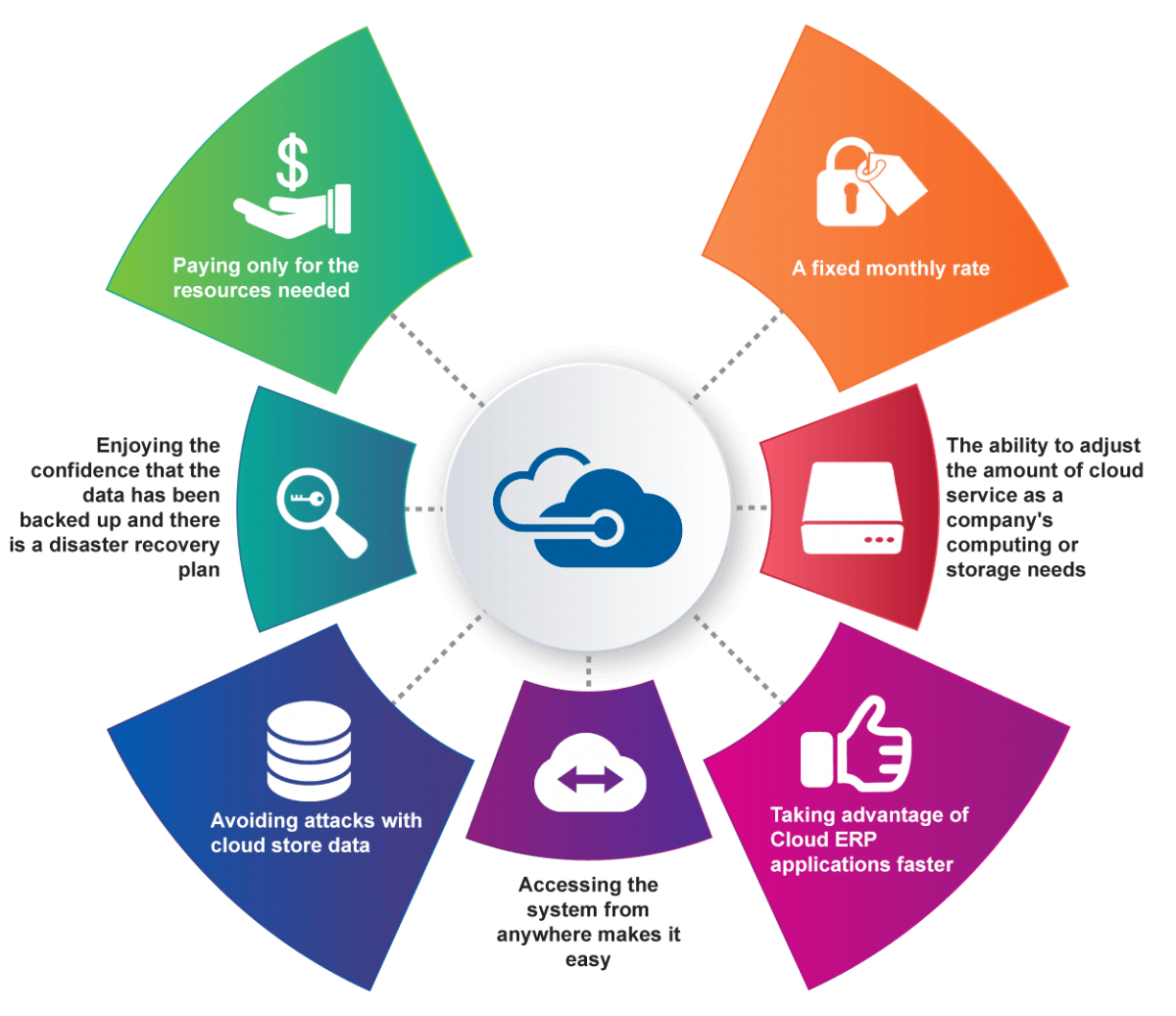
The future of cloud ERP is bright, with ongoing advancements in artificial intelligence (AI), machine learning, and big data analytics set to further enhance the capabilities of ERP systems. These technologies promise to deliver even greater insights into business operations, enabling more informed decision-making and innovative solutions to complex business challenges. Additionally, with the increasing adoption of cloud computing across industries, it is likely that cloud ERP will become the standard for enterprise solutions in the coming years.
Challenges in ERP Implementation
Despite the numerous advantages of ERP systems, organizations face several challenges during the implementation process. One of the primary difficulties is managing the complexity of the transition, especially for businesses moving from legacy systems to a modern ERP solution. This transition can involve significant changes in business processes, requiring thorough planning and adjustment periods for employees. Additionally, the cost of implementing an ERP system, though offset in the long term by operational savings and efficiency gains, can be substantial in the short term. Ensuring data quality and integrity during the migration process is another hurdle, as is achieving buy-in from all stakeholders. Resistance to change is common, and without effective communication and training, adoption can be slow. Furthermore, selecting the right ERP solution that aligns with the specific needs of the business, and configuring it to work effectively within the organization’s existing workflows, demands a deep understanding of both the software and the business itself.
Security measures in cloud-based ERP systems are designed to protect data integrity, prevent unauthorized access, and ensure the reliability of the service. These systems implement several layers of security, including:
- Data Encryption: All data transmitted between the user and the cloud ERP system is encrypted using advanced protocols such as SSL (Secure Sockets Layer). This ensures that data in transit cannot be intercepted or tampered with.
- Access Controls: Cloud-based ERP solutions utilize robust access control mechanisms to ensure that only authorized users can access the system. This is typically managed through secure login processes, multi-factor authentication (MFA), and granular permissions settings that restrict users’ access to only the information and functions relevant to their roles.
- Regular Security Audits and Compliance Checks: Ensuring ongoing adherence to industry standards and regulations, cloud ERP providers frequently conduct thorough security audits. These audits help identify potential vulnerabilities and ensure the system’s compliance with regulations such as GDPR, HIPAA, or SOC 2.
- Firewalls and Intrusion Detection Systems: To defend against external threats, cloud ERP systems are protected by firewalls that monitor and control incoming and outgoing network traffic based on predetermined security rules. Intrusion Detection Systems (IDS) are also employed to detect and alert on potential security breaches.
- Data Center Security: The physical security of the data centers where the cloud ERP systems are hosted is a critical component. These facilities often feature multi-tiered security protocols including biometric access controls, surveillance cameras, and 24/7 monitoring to prevent unauthorized access.
- Backup and Disaster Recovery: Cloud ERP vendors implement comprehensive backup and disaster recovery strategies to ensure data integrity and continuity of service. Regular backups are performed, and data is replicated across multiple secure locations to minimize the risk of data loss in the event of a system failure or disaster.
By leveraging these and other advanced security measures, cloud-based ERP systems provide businesses with a secure and reliable platform for managing their operations, emphasizing the importance of cybersecurity in the digital age. As technology continues to evolve, cloud ERP vendors will continue to innovate and invest in security measures to protect their customers’ sensitive data, providing peace of mind for businesses considering a move to the cloud. So, it is essential for enterprises to thoroughly assess the security features and protocols offered by cloud ERP providers before making a decision.
Integration of Artificial Intelligence (AI) in cloud ERP systems
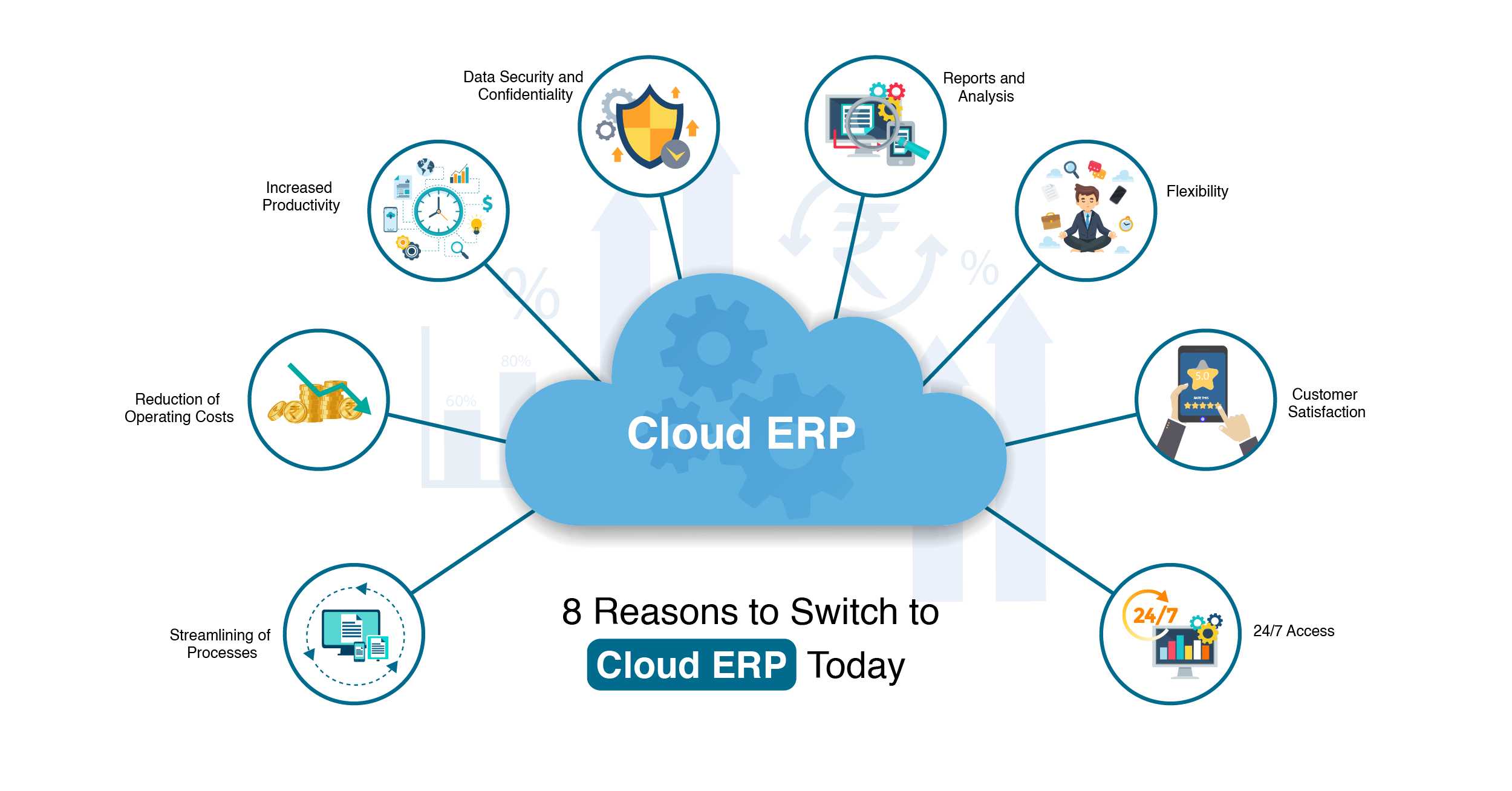
The integration of Artificial Intelligence (AI) in cloud ERP systems marks a significant leap in how businesses process data and make decisions. AI technologies enable these systems to learn from data, identify patterns, and make predictions, thus enhancing overall business efficiency and strategic insight. For instance, AI can automate routine tasks, such as data entry and analysis, freeing up employees to focus on more complex and strategic activities. Additionally, AI-driven analytics can provide deeper insights into business operations, customer behavior, and market trends, allowing companies to make more informed decisions faster. Furthermore, AI can improve the accuracy of demand forecasting, optimize supply chain management, and personalize customer experiences at scale. By harnessing the power of AI, cloud ERP systems are not only transforming the way businesses operate but also providing them with a competitive edge in the rapidly evolving digital landscape.
Benefits of cloud-based ERP systems
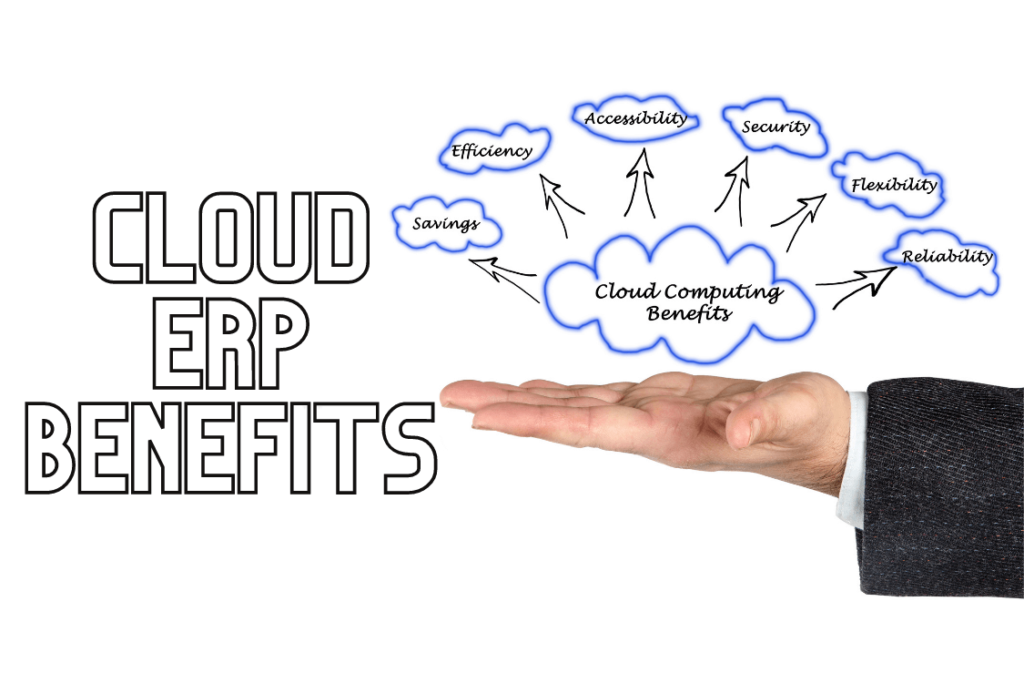
The benefits of cloud-based ERP systems extend well beyond their advanced security measures and the integration of Artificial Intelligence (AI). One of the most significant advantages is the scalability that cloud ERP offers. Businesses can easily scale their ERP solutions up or down based on current needs without significant upfront investments in hardware or IT infrastructure. This flexibility is particularly beneficial for growing businesses that face rapidly changing demands.
- Additionally, cloud-based ERP systems provide enhanced accessibility, allowing users to access critical business information and functionalities from anywhere, at any time, as long as they have an internet connection. This remote accessibility supports the growing trend of remote work and global business operations, ensuring that employees stay connected and productive, regardless of their location.
- Another benefit is the aspect of cost-effectiveness. With cloud ERP, companies avoid the substantial upfront costs associated with on-premise systems, such as purchasing hardware and licensing fees. Instead, they typically pay a subscription fee, which includes maintenance, updates, and support, allowing for more predictable budgeting and reduced IT overheads.
- Furthermore, cloud ERP systems ensure that businesses are always running on the most current version of the software, with updates and new features being rolled out by the provider without downtime or additional costs for the business. This continuous innovation keeps businesses at the forefront of technology without having to invest in new software or undergo complicated, costly upgrades.
- Lastly, cloud ERP offers enhanced collaboration features that enable real-time data sharing and communication among departments, partners, and customers, fostering more efficient and integrated business processes. This level of integration and collaboration can lead to more informed decision-making, improved productivity, and increased customer satisfaction.
In summary, cloud-based ERP systems present a compelling array of benefits, including scalability, accessibility, cost efficiency, automatic updates, and improved collaboration, making them a valuable asset for businesses looking to streamline operations and support growth in the digital age.
Conclusion
The shift to cloud-based ERP systems represents a significant opportunity for enterprises to modernize their operations, achieve cost savings, and enhance flexibility and scalability. With advances in technology and a focus on security, cloud ERP is poised to become the new standard in enterprise solutions. As businesses look to the future, adopting cloud-based ERP systems will be essential to staying competitive in the rapidly changing global market.
For enterprises contemplating this transition, the time to act is now. By leveraging the power of cloud ERP, businesses can position themselves for success in the digital age, ready to adapt to whatever the future holds.
Did you find this ringtone useful?


